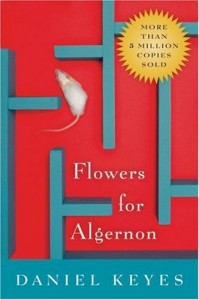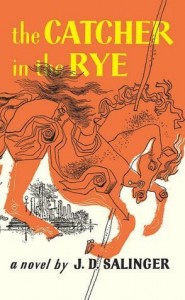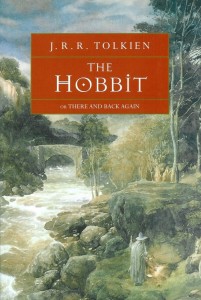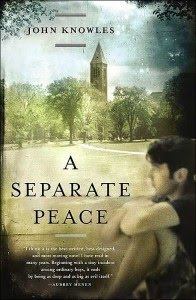As you may have gathered from my extensive current reading list — and I promise it has NOTHING to do with how many books I must finish before 12/31 to complete my Goodreads goal, ahem 😉 — it’s that time of year again. My advanced tenth graders are now ensconced in their choice novel unit in which they get to select a book from our list of accepted novels to read and discuss in small reading circles. It’s like a school book club; I love it!
I do this primarily to give myself (yeah, right) and the kids a breather between two of our play units (Antigone and Julius Caesar) and to make up for the fact that I am ultimately not cool enough a teacher to rearrange my life to create (or be invited to participate in) a grand-scale board game based on the Arthurian legends that my colleagues put on each year. (But I’m not bitter or anything…) Anyway, my goal is to give my advanced students, most of whom USED to be avid readers, a chance to remember why they love books while still completing academic work that does not lead to readicide (the accepted term coined by educator Kelly Gallagher for atrocious “killing” of beloved books in schools). This year, we have some new additions to as well as some surprising departures (The Princess Bride, Toxin) from the list.
 Flowers for Algernon by Daniel Keyes – This one was a choice but didn’t make the final cut last year. Many of the kids have read it in short story form prior to coming to me. I love this story of intellectually disabled (I guess that is the current term) Charlie Gordon, the errand boy at a bakery, who is trying to teach himself to read and “be smart.” Charlie’s mental capacity is woefully low, but his endearing innocence is captivating. When he gets selected to be part of a scientific study which includes an operation on his brain to improve his IQ, my heart soars; when his friend Algernon the mouse, who had the operation first, begins to deteriorate, it plummets. Wrenching and realistic, this is one of those books that has stayed with me a long time. PROS – highly original, dramatic, and many of the kids have an “in” since they’d read the short story. CONS – It is longer and at times a bit repetitive and technical (students say “boring”) in the middle.
Flowers for Algernon by Daniel Keyes – This one was a choice but didn’t make the final cut last year. Many of the kids have read it in short story form prior to coming to me. I love this story of intellectually disabled (I guess that is the current term) Charlie Gordon, the errand boy at a bakery, who is trying to teach himself to read and “be smart.” Charlie’s mental capacity is woefully low, but his endearing innocence is captivating. When he gets selected to be part of a scientific study which includes an operation on his brain to improve his IQ, my heart soars; when his friend Algernon the mouse, who had the operation first, begins to deteriorate, it plummets. Wrenching and realistic, this is one of those books that has stayed with me a long time. PROS – highly original, dramatic, and many of the kids have an “in” since they’d read the short story. CONS – It is longer and at times a bit repetitive and technical (students say “boring”) in the middle.
 The Catcher in the Rye by J.D. Salinger – A grudging addition to the list because, like ASP, this is NOT one of my favorites. I added it as many of the students had heard about it being something they could finally read in 10th grade and they expressed an interest. Holden Caulfield is an isolated and troubled teen coming to terms with all sorts of grownup issues, and he is definitely an iconic main character. I guess because I see teens every day who have more serious issues, I do find it hard to emphathize with him. Still, every student probably SHOULD read this story simply because of its lasting value in the literary canon. Not a favorite and certainly not action-packed, but this is not a bad look at the psyche of a mid-20th century, privileged teen. PROS- tied with ASP for the shortest on the list (as much as I hate it, that is always a factor with kids) and it is certainly here for the long haul and recognizable. Many kids also want to know about the serial killer connection. CONS – Feels whiny and overlong, most of my students don’t really relate to a kid who visits Central Park and goes to private boarding schools.
The Catcher in the Rye by J.D. Salinger – A grudging addition to the list because, like ASP, this is NOT one of my favorites. I added it as many of the students had heard about it being something they could finally read in 10th grade and they expressed an interest. Holden Caulfield is an isolated and troubled teen coming to terms with all sorts of grownup issues, and he is definitely an iconic main character. I guess because I see teens every day who have more serious issues, I do find it hard to emphathize with him. Still, every student probably SHOULD read this story simply because of its lasting value in the literary canon. Not a favorite and certainly not action-packed, but this is not a bad look at the psyche of a mid-20th century, privileged teen. PROS- tied with ASP for the shortest on the list (as much as I hate it, that is always a factor with kids) and it is certainly here for the long haul and recognizable. Many kids also want to know about the serial killer connection. CONS – Feels whiny and overlong, most of my students don’t really relate to a kid who visits Central Park and goes to private boarding schools.
 Uglies by Scott Westerfeld – This one is a newer option to round out our tenth grade curriculum and I taught it for the first time last year. Tally Youngblood is about to turn 16 when she, like all others in this futuristic novel, will undergo a transformative surgery to make her “pretty.” Then she will live a life of frivolity and happiness before finally settling down as a respectable middle pretty. The plot gets complicated when Tally and her friends realize that being pretty isn’t always quite as satisfying or harmless as it seems. PROS – This is fun, modern YA fiction and highly engaging for teens. The intriguing premise carries through a series of three novels without falling short. CONS- At 400+ pages, it is the longest of the choices making it more difficult for some students; I would have to argue that of the choices, this one has the least “academic” merit.
Uglies by Scott Westerfeld – This one is a newer option to round out our tenth grade curriculum and I taught it for the first time last year. Tally Youngblood is about to turn 16 when she, like all others in this futuristic novel, will undergo a transformative surgery to make her “pretty.” Then she will live a life of frivolity and happiness before finally settling down as a respectable middle pretty. The plot gets complicated when Tally and her friends realize that being pretty isn’t always quite as satisfying or harmless as it seems. PROS – This is fun, modern YA fiction and highly engaging for teens. The intriguing premise carries through a series of three novels without falling short. CONS- At 400+ pages, it is the longest of the choices making it more difficult for some students; I would have to argue that of the choices, this one has the least “academic” merit.
 The Hobbit by J.R.R. Tolkien – This was a major hit this year, no thanks at all, I’m sure, to the upcoming film. I was trying to finish this unit BEFORE the movie release, but due to some shipping issues, I don’t think that is going to happen. A prequel to The Lord of the Rings trilogy, this one follows Bilbo Baggins on an (almost) entirely unrelated, but still epic, quest to help some dwarves retrieve their stolen gold from the dragon Smaug. PROS – again, the movie is creating some buzz and some of the kids have an “in” through prior films. CONS – some of the language can be inaccessible and difficult for American teens. I find this one hard to keep up with when reading the other novels as it seems to move much more slowly than the rest.
The Hobbit by J.R.R. Tolkien – This was a major hit this year, no thanks at all, I’m sure, to the upcoming film. I was trying to finish this unit BEFORE the movie release, but due to some shipping issues, I don’t think that is going to happen. A prequel to The Lord of the Rings trilogy, this one follows Bilbo Baggins on an (almost) entirely unrelated, but still epic, quest to help some dwarves retrieve their stolen gold from the dragon Smaug. PROS – again, the movie is creating some buzz and some of the kids have an “in” through prior films. CONS – some of the language can be inaccessible and difficult for American teens. I find this one hard to keep up with when reading the other novels as it seems to move much more slowly than the rest.
 A Separate Peace by John Knowles- I had quite a few kids request this novel as well, some because they had already read it and were looking for an easy read, but some because they genuinely seemed excited by it. To each his own, I guess. This is the story of two best friends: bookish Gene and athletic Finny who are determined to make something of their lives before being drafted into the army. The two spend a carefree summer bonding, jumping out of trees, breaking school records, and being reckless before tragedy occurs. PROS – again, it’s short and a good example of the “American novel” (I am unconvinced how great it is). On careful reading, it has memorable scenes, psychological drama, and examples of foreshadowing. CONS – Much dense and unfamiliar language, so it hasn’t stood the test of time as well as some of the true greats and some students find it boring and inaccessible.
A Separate Peace by John Knowles- I had quite a few kids request this novel as well, some because they had already read it and were looking for an easy read, but some because they genuinely seemed excited by it. To each his own, I guess. This is the story of two best friends: bookish Gene and athletic Finny who are determined to make something of their lives before being drafted into the army. The two spend a carefree summer bonding, jumping out of trees, breaking school records, and being reckless before tragedy occurs. PROS – again, it’s short and a good example of the “American novel” (I am unconvinced how great it is). On careful reading, it has memorable scenes, psychological drama, and examples of foreshadowing. CONS – Much dense and unfamiliar language, so it hasn’t stood the test of time as well as some of the true greats and some students find it boring and inaccessible.
For more of my reviews on Uglies, The Hobbit, and A Separate Peace from last year’s independent choice novel unit, click here.
- UPDATE: HA! I KNEW ASP wasn’t for everyone. My last group of readers of A Separate Peace bowed out today and switched to other novels; I promise I didn’t try to sway them a bit. Woo! I’m down to four books I have to read simultaneously and make quizzes for 🙂 …And the two I’m reading for myself…and the one I’m reading jointly with my kiddo…and the 10 folk tales I’m reading with my regular English kids…









